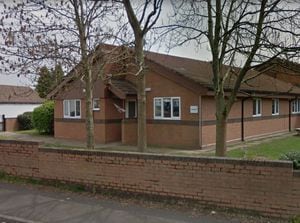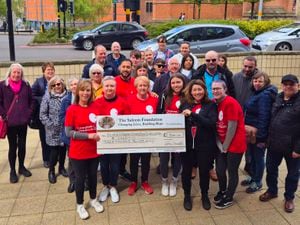Homes plan for people with learning disabilities thrown out over concerns
A plan to create new homes for people living with learning disabilities has been refused on appeal after concerns were raised over its "institutional appearance".

Community care firm Lifeways bid to create flats within a former NHS care home at Springfield, in Spring Lane, in Pelsall, Walsall.
But when it was inspected by the Care Quality Commission (CQC) officials said it had an "institutional appearance" similar to a hospital and refused the application.
Lifeways submitted an appeal against the refusal in October last year but now the decision has been upheld by a tribunal run by the HM Courts and Tribunals Service.
CQC officials welcomed the judgement saying it clarifies the standards for where people can live.
The new site would have accommodated 10 people – later reduced to nine – and would have been split up in to three areas offering three en-suite bedrooms with shared kitchen and living room facilities and three self-contained flats.
The care home was on the same site as six supported living flats for people with learning disabilities and/or autism.
Facilities included a large garden and car park.
The tribunal panel’s unanimous view was that it “was obvious the proposed care home had an institutional look to it and clearly had characteristics of a campus style setting which stood out and was apart from the surrounding neighbourhood”.
They added the Springside proposal was “completely inappropriate” with reference to the national guidance and policy.
The panel also felt that “the proposed care home and the extent to which it departs from national policy and guidance creates unacceptable and serious risks to service users in the provision of care”.
Joyce Frederick, deputy chief inspector, Registration at CQC said: “I am delighted the First-tier Tribunal has recognised that our decision to refuse this variation in registration was justified and in the best interests of those who would have potentially used this service.
“The panel agreed with the analysis of CQC witnesses that to allow registration in these circumstances would not promote the “Transforming Care agenda” and that “if we accept Good Enough we can’t transform the service and achieve the necessary change.”
"This recognises the important role that the CQC has in making decisions about registration that protect and promote the health, safety and welfare of people with complex learning disabilities and/or autism.”
Lifeways is a care provider looking after people with complex care needs, including those with a learning disability, autism and mental health issues.
A spokesman for Lifeways said: “Lifeways are disappointed by the tribunal decision, as we felt strongly that the homes we are providing are of a high standard, meet the needs of local people, and also meet the principles of ‘Registering the Right Support’, principles that we support.
"The homes were developed in close collaboration with the local authority, who are clear that they meet the needs of the people in the borough.
"We will continue to work with both commissioners and the CQC to ensure that future developments are of a high quality and meet the needs of the people we support.”





